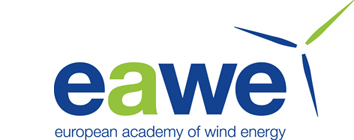About DEI
We are committed to improving diversity, equity and inclusion (DEI) in wind energy science, by (a) providing tools to help people improve DEI in their organisations, (b) increasing the visibility of under-represented groups and (c) acting as positive role models by improving DEI within EAWE and our own organisations. To achieve this mission, it is important that we define what we mean by DEI and why this is necessary for the wind energy industry to survive.
Diversity, equity and inclusion
The definitions:
- Diversity means that an organisation is made up of a group of people from a wide range of categories. These categories could include race, ethnicity, gender identity, religion, age, and much more.
- Equity refers to “the quality of being fair or impartial; fairness; impartiality” or “something that is fair and just.”
- Inclusion means that everyone feels welcome to contribute and participate. The workplace is supportive and collaborative, with clear goals of getting all employees to participate.
All three aspects are needed for a high-functioning and healthy workplace. A work environment that is diverse but not inclusive may have high turnover rates for minorities, as they do not feel that their contributions matter or are valued in the workplace. An environment without equity will likely struggle with diversity, especially in more senior positions, as existing barriers for certain groups hinders their professional development.
Why we need DEI initiatives
- Diverse teams are more productive1:
- 83% of millennials more engaged at work when they believe their company fosters an inclusive culture
- Gender diverse companies are 15% more likely to outperform their respective national industry medians
- Ethnically diverse companies are 35% more likely to outperform their respective national industry medians.
- Diversity is good for business2:
- Diverse companies are 35% likelier to financially outperform the industry medians.
- Study after study has shown that diversity leads to more creative teams and increases a company’s bottom line.
- Other research finds that inclusive teams make better business decisions 87% of the time.
- "Under-representation" of certain groups is a sign of (and fosters) inequality and discrimination.
- There is a significant skills shortage in STEM fields, which can be alleviated by fighting systemized biases and impedances to underrepresented groups.3
